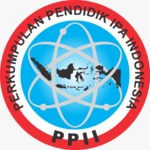Pengembangan Modul Fisika Bermuatan Emotional Spiritual Quotient (ESQ) Untuk Memberdayakan Pengetahuan Dannilai Karakter Siswa SMA/MA
DOI:
https://doi.org/10.29408/kpj.v3i1.1531Keywords:
Module, Emotional Spiritual Quotient (ESQ), Character Value, KnowledgeAbstract
This research aims at; (1) describe the characteristics of the Physics module in material with ESQ for grade X SMA / MA. (2) get Physics module with ESQ for grade X SMA / MA who are eligible based on criteria. The method of this research using R & D with the reference of model 4-D (four D model) proposed by Thiagarajan, Semmel (1974). Model 4-D consists of definition, design, development and dissemination. The module is arranged with a load of emotional spiritual quotient (ESQ) which consists of developing knowledge, students can find a solution to their problems, provide a productive learning environment, creating a learning climate of physical and social for students, and engage students optimally in learning good emotional and spiritual. In addition, the module is also equipped with guided-inquiry stage as pillars in the module because it is a part of scientific approach that needs to be developed in 2013 curriculum. The module is assessed based on the feasibility of materials, media, and languages, as well as trials (limited and extensive) to students, and the deployment phase in MGMP. Data collection of the research used questionnaires and guidelines of analysis interview, validation sheet, questionnaire responses, the character values questionnaire, observation of character value, and disseminate questionnaire. The results of the study as follows: (1) physics module which contains six components of esq were well presented, expressed or implied, with guided-inquiry basis in it. (2) modules which are categorized as an adequateone with the calculation results (matter experts, media specialists, linguists, teachers, peers) that shows the average score of 86.0> cut-off 84.3. And supported by the positive response from students and disseminate results conducted on the MGMP forum categorizing as a good module. (3) the use of the module can empower the character value and knowledge of the student because > 75% can reach more than minimum score (KKM).References
Althof, W. e. 2006. Moral Education and Character Education: their relationship and roles in citizenship education. Journal of Moral education, 35, 495-518.
.(2012). The Relationship between Character and Citizenship Education. The Jubilee Centre for Character and Values, University of Birmingham.
Animasahun, Rotimi A. 2010. Intelligence Quotient, Emotional Intelligence and Spiritual Intelligence as Correlate of Prison Adjustment among Inmate in Nigeria Prisons. Jurnal Social Science, 22(2): pp. 121-128.
Benninga, et al,. 2003. The Relationship of Character Education Implementation and Academic Achievement in Elementary Schools. Journal of Research in Character Education, 1 (1), ISSN 1543-1223, pp. 19-32.
Depdiknas. 2008. Penulisan Modul. Direktorat Tenaga Kependidikan: Dirjen Peningkatan Mutu Pendidik dan Tenaga Kependidikan.
Dhingra, et al,. 2005. Establishing Connectivity of Emotional Quotient (EQ), Spiritual Quotient (SQ) with Social Adjustment: A study of Kashmiri Migrant Women. P.G. Department of Home Science, University of Jammu, India.
Giancoli, D. C. 1998. Fisika Edisi Kelima. Jakarta : Erlangga.
Goleman, D. 2003. Working with Emotional Intelligence. Jakarta: Gramedia.
Hamdani. 2011. Strategi Belajar Mengajar. Bandung:Pustaka Setia.
Haryanto. (2003). Perencanaan Pengajaran. Jakarta: Rineka Cipta.
Herawati, wulan lutfi, dkk. 2014. Studi Korelasi antara Kecerdasan Emosional Spiritual (ESQ) dan Hasil Belajar Fisika siswa MAS di wilayah kecamatan Dukun Kabupaten Gresik. Jurnal inovasi Pendidikan Fisika (JIPF) ISSN: 2302-4496, vol 3 no. 2 2014 161-166
Hidayat. (2009). Pengendalian Diri Salah Satu Keterampilan Kecerdasan Emosional Untuk Meningkatkan Prestasi Belajar Siswa Sejak Dini. Madrasah, 2.
Jannah, d. (2012). Pengembangan Perangkat Pembelajaran Berorientasi Nilai Karakter Melalui Inkuiri Terbimbing Materi Cahaya Pada Siswa Kelas VIII Sekolah Menengah Pertama. Journal of Innovative Science Education , 55-60.
Joyce, B. & Weil, M. with Calhoun. 2000. Models of Teaching. 6th edition. Boston: Allyn and Bacon.
Katuk, Deitje A. 2014. Pengembangan Instrumen Pendidikan Karakter Pada Siswa SD di Provinsi Sulawesi Utara. Jurnal Pendidikan Karakter, Tahun IV, Nomor 1, 12-22.
Krathwohl, D.R.2002. A Revision of Bloom’s Taxonomy: an Overview-Theory Into Practice, College Education, The Ohio State University, Learning Domains or Bloom's Taxonomy: The Three Types of Learning. Diakses dari www.nwlink.com/~donclark/hrd/bloom.html pada tanggal 30 Januari 2015.
Kumar, T. a. (2010). Relationship Between Emotional Intelligences and Spiritual Quotient of Executives. The International Journals: Research Journal of Social Science and Management , ISSN: 2251-1571.
Lahabu, Nirmala T. 2014. Program Pengembangan Kecerdasan Emosional dan Kecerdasan Spiritual (ESQ) Siswa di SMA Terpadu Wirabakti Kabupaten Bone Bolango.
Lickona, e. a. (2007). CEP's : Eleven Principles of Effective Character Education. Character Education Partnership .
Majid, A. (2006). Perencanaan Pembelajaran Mengembangkan Standar Kompetensi Guru. Bandung: Remaja Rosdakarya.
Manullang, Belferik. 2013. Grand Desain Pendidikan Karakter Generasi Emas 2045. Jurnal Pendidikan Karakter. Jurnal Pendidikan Karakter, Tahun III, Nomor 1, Februari.
Masaong, Kadim Abd. 2010. Pendidikan Karakter Berbasis Multiple Intelligence. Konaspi VIII, Universitas Negeri Yogyakarta.
Musslifah, Anies R. 2012. Perilaku Menyontek Siswa ditinjau dari Kecenderungan Locus of Control. Jurnal Talenta Psikologi, Volume 1, No.2. Prodi Psikologi Fakultas Ilmu Kesehatan Universitas Sahid Surakarta.
Mu’tashim, Radjasa, Aryani, SA., Sutrisno, et al. (2006). Kerangka Dasar Keilmuan
dan Pengembangan Kurikulum. Yogyakarta: Pokja Akademik UIN Sunan
Kalijaga.
Naqsa. 2012. Makalah tentang Perilaku Menyimpang Menyontek dikalangan Pelajar. Diakses dari http://ademardhatillah.blogspot.com/2012/10/makalah-tentang-perilaku-menyimpang.html pada tanggal 25 Januari 2015.
Notoatmojo, S. 2003. Promosi Kesehatan dan Ilmu Perilaku. Jakarta:Rineka Cipta.
Paul, suparno. 2013. Metodologi Pembelajaran Fisika Kontruktivisme dan Menyenangkan. Yogyakarta:Universitas Sanata Dharma
Poespoprodjo, W. G. (2006). Logika Ilmu Menalar. Bandung: Remaja Karya.








